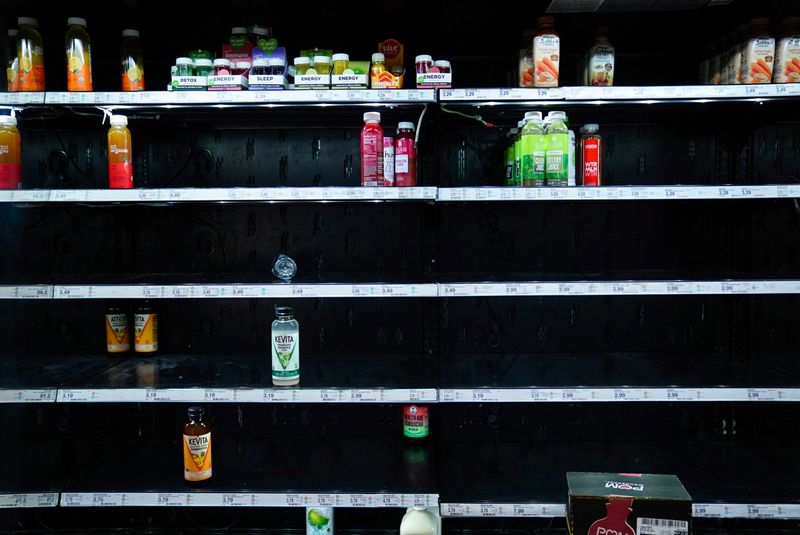By Howard Schneider
WASHINGTON (Reuters) - Stress on global supply chains worsened in April as coronavirus lockdown measures in China and the war in Ukraine lengthened delivery times, and air freight costs between the United States and Asia rose, the New York Federal Reserve reported in its latest update to a worldwide index of supply problems.
The rise in the index partially reversed the easing of supply problems seen in the previous four months, and, if it continues, potentially means more persistent inflation even as central banks struggle to control rising prices.
"This estimate suggests that the moderation we have observed in recent months has been partially reversed, as lockdown measures in China and geopolitical developments are putting further strains on delivery times and transportation costs in China and the euro area," a team of New York Fed economists wrote about the April release of the regional bank's Global Supply Chain Pressure Index.
The index incorporates data on shipping costs, delivery times, backlogs and other statistics into a single measure compared to historical norms. It rose sharply in February of 2020, as the coronavirus spread and governments imposed restrictions to contain it, and has remained elevated since.
The index was first published in January and will now be released monthly in an effort to track what has become a key issue in the global recovery from the pandemic, and in the efforts of the Fed and other major central banks to curb inflation.
The U.S. central bank and some other institutions are already raising interest rates or laying plans to do so in an effort to curb consumer and business demand for goods and services.

But they are also hoping supply chains rebound, and the pace of rate hikes and the ultimate level of rates - and the amount of global demand and growth that needs to be trimmed - will depend partly on how fast that occurs.
That has thrown a particular focus on whether China's strict COVID policies will be relaxed, and if so how fast the country's output of manufactured goods and industrial products can recover.